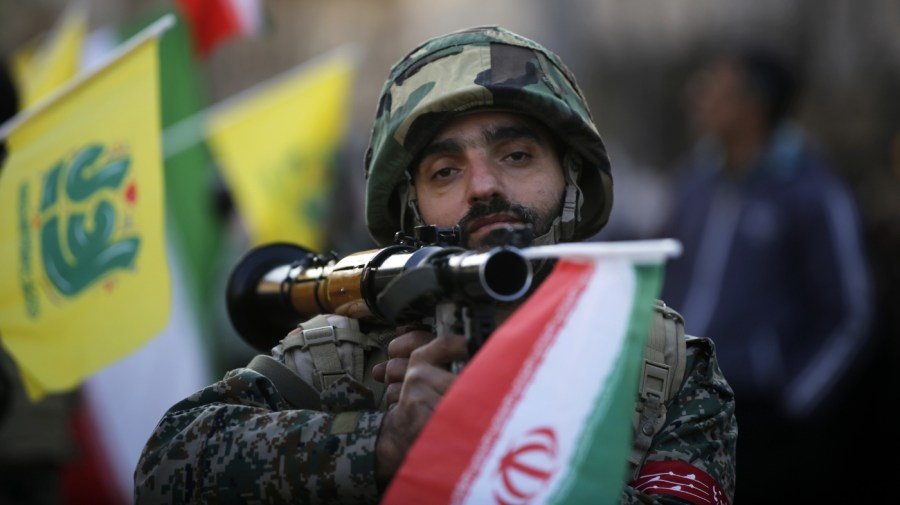
Historic events in Syria are heightening the stakes of another major Middle East crisis that already awaits President-elect Trump. Following its other recent losses in the region, the evaporation of Iran’s ally in Damascus will reinforce its motivation to finish working toward a nuclear weapon and redouble its efforts to ensnare the incoming administration in negotiations.
Tehran is not showing goodwill or offering concessions but instead building leverage to coerce relief from sanctions and military threats. It also wants to run out the clock on “snap back” of tough United Nations bans on its nuclear and conventional weapons programs.
At this late hour, the United States cannot afford more diplomacy on Tehran’s terms. In past nuclear talks, Iran successfully pressured American officials to abandon their demands, eviscerate sanctions, waste precious time and ultimately do nothing to halt its atomic venture. Throughout, the United States downplayed alternatives to diplomacy, while Tehran built counterpressure with nuclear advances and attacks on U.S. interests.
A new report from our organization shows how Trump can overcome these challenges and block the regime from the nuclear threshold. Following decades of U.S. vows to do everything necessary to keep the bomb from Tehran’s hands, abandoning this commitment would profoundly damage American credibility, encourage greater Iranian aggression, and undermine deterrence against China, Russia, and North Korea.
The new president will need to consider Iran’s offer to parley if only to build broad support for much tougher forms of engagement. But first, he must amass maximum leverage to compel Tehran to engage earnestly and urgently. If Iran fails to do so, or if talks never occur, he must apply these same pressures to prevent a nuclear Iran by other means. Fortunately, Tehran reliably curtails its aggression when such serious steps are credible.
Starting now, Trump should warn everyone aiding Iran’s economy to end their business immediately or face painful penalties on day one of his presidency, and he can curtail the regime’s revenues by fully enforcing sanctions on anyone involved in producing or exporting Iranian energy.
By incentivizing greater energy production at home and from friendly Arab states and refilling the dwindling Strategic Petroleum Reserve, he can drive down the selling price of Iran’s remaining crude and thwart its attempts to retaliate by threatening the rest of the Middle East’s oil exports.
Economic pressure will not suffice, however, since Tehran routinely escalates its nuclear and regional aggression in response. To maximize the credibility of U.S. military options, Trump should state his readiness to use force against the regime’s most prized possessions.
Tangibly, the Pentagon should update plans for neutralizing Iran’s nuclear and other military facilities; deploy strategic bombers, massive ordnance penetrator munitions, and additional naval assets within striking distance; and conduct visible exercises with these assets. Congress can help by passing a new, tailored Authorization for the Use of Military Force against Iran’s nuclear program.
Trump also must build a united front, since Tehran inevitably tries to split America from its European, Israeli and Arab partners. Proactive cooperation with Europe is vital to put U.N. snapback in motion well before its October 2025 expiration, and the European Union needs persuading to deal the regime a major blow by designating its Revolutionary Guard as a terrorist group.
Most importantly, Iran has never faced its nightmare scenario of a coordinated U.S.-Israeli military threat. While the impact of sanctions will grow over time, right now Israel’s proven ability to inflict serious damage on Iran and its proxies is the readiest and deadliest tool at hand.
Trump can sharpen Iranian minds by declaring Israeli military action to be consistent with U.S. prevention policy, and by replenishing or upgrading key capabilities like precision-guided munitions, aerial refueling tankers, and air defenses. As in the past, the Pentagon should consider leaving some of these assets in Israel after bilateral exercises.
For the first time ever, the United States also must exploit the regime’s rising domestic illegitimacy, forcing it to divert focus from external aggression to plugging internal security gaps.
Trump must undertake all these measures promptly and aggressively, whether or not negotiations develop. If they do, he must maintain maximum pressure, demand Iran prove its good intentions by complying with nuclear inspectors and freezing enrichment, set a deadline for diplomacy before snapback expires, and ditch talks for more forceful options if Iran balks or drags its feet.
Only by avoiding his predecessors’ mistakes can Trump hope to secure an acceptable deal — one that permanently and meaningfully restricts Iranian enrichment, addresses its nuclear and regional threats alike and forces it to verifiably abandon its pursuit of the bomb. Even if this never comes about, by acting swiftly and resolutely he can still forge a legacy by upholding America’s enduring, but imperiled, pledge to prevent a nuclear Iran.
Ambassador Eric Edelman and Gen. Charles Wald, USAF (ret.) co-chair the Iran Policy Project at the Jewish Institute for National Security of America, where they are a distinguished scholar and a distinguished fellow, respectively. Edelman is a former undersecretary of Defense for Policy and Wald is the former deputy commander of U.S. European Command.












